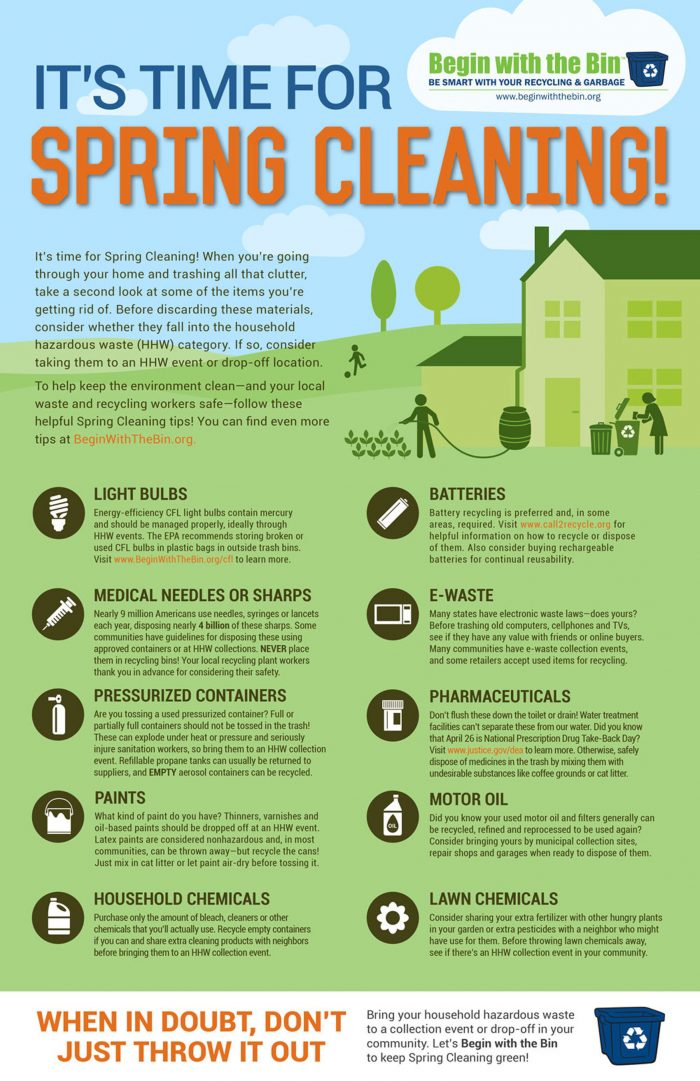Spring Cleaning? Ditch Waste Safely

Are hints of spring inspiring you to clear your clutter? According to the American Cleaning Institute, nearly three-quarters of all Americans dive into a spring cleaning project annually.
But, some of the clutter that gets cleared isn’t friendly to the environment (or waste workers) if disposed of in an unsafe way. Often, Household Hazardous Waste (HHW)—including everything from bleach and cleaning chemicals to lawn fertilizers and motor oil is just pitched in the trash.
But these caustic chemicals can be managed in a much more appropriate, healthy, and eco-conscious way. Instead of turning to the trash can when you ditch your spring cleaning undesirables, look for your local community’s HHW collection events or check in with your local city offices to learn about drop-off locations for HHWs available at nearby waste facilities.
“Waste employees have tough jobs, but when chemicals, potentially explosive items, or other hazards are tossed in with common household trash, workers are put at serious risk for injury,” said Sharon H. Kneiss, president and CEO of the National Waste & Recycling Association (Waste & Recycling). “There are safer, environmentally friendly ways to dispose of Household Hazardous Waste.”
Get some solid tips on what goes in the trash, what needs extra care, and what should be brought to community HHW drop-offs for special handling at www.BeginWiththeBin.org/hhw. Or, for further information on how to properly dispose of items of concern, check out the infographic below from BeginwiththeBin.org.
In general, community collection events or scheduled waste facility drop-offs are the most environmentally friendly (and safe) way to dispose of the following items, including commercial chemical cleaning supplies:
- Outside: Products including fertilizers, pesticides, weed killers, and pool chemicals
- Inside: Household chemicals including nail polish remover, hair relaxers, bleach, oven cleaners, drain cleaners, metal polishes, and full or partially full aerosol cans
- In the garage: Motor oil, paint thinners, varnishes, and oil-based paints. Latex paints are not considered hazardous and, in most communities, can be disposed in the trash—but recycle the cans. Just let the paint air-dry, or add cat litter to speed up drying, before removing it from cans and tossing it.




CONNECT WITH US